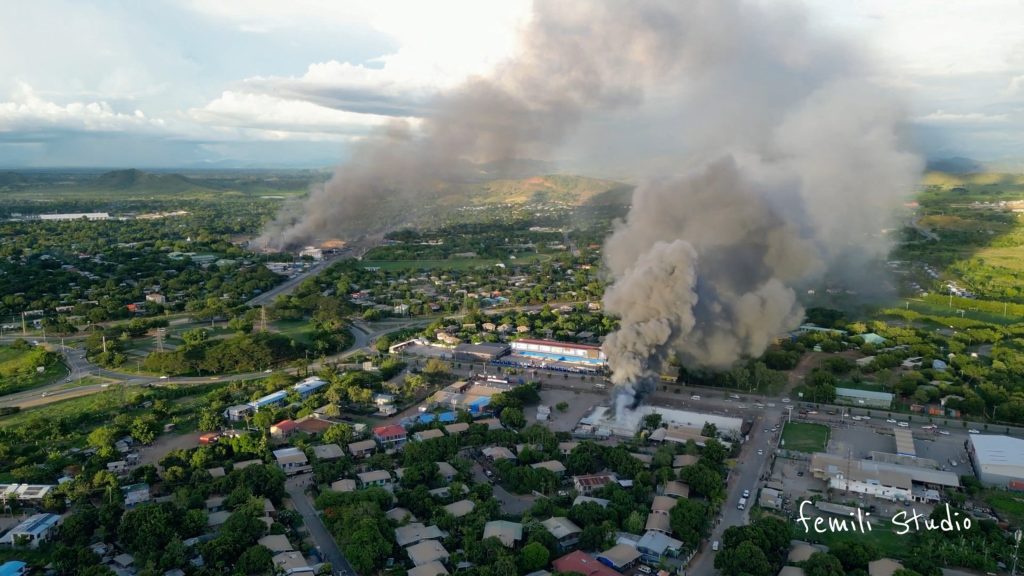It was a challenging year for Papua New Guinea in 2023. The government estimates that the economy grew by only 2.7 per cent in 2023, down from a projection of 4.0 per cent in the 2023 budget. Buoyed by increased government spending and the expected resumption of the Porgera gold mine, the PNG economy is forecasted to grow by 5.3 per cent in 2024.
The year was also marked with disruptions to critical services, especially domestic air travel. These disruptions largely stemmed from fuel shortages brought about by the rationing of foreign exchange currency, despite the central bank’s increased intervention in the foreign exchange market. This and improvement of state-owned enterprise governance should be the government’s top macroeconomic policy priorities.
The government entered into a three-year International Monetary Fund (IMF) financing program in March 2023. IMF programs come with conditions, one of which was to improve the convertibility of the Papua New Guinean kina. It also appears that the IMF is demanding that the PNG government reverse central bank reforms, forcing the PNG central bank to revert to a sole objective of price stability.
The PNG parliament passed mining legislation that paved the way for the Porgera gold mine to reopen on 22 December 2023 after four years of negotiations between the government, Barrick Gold Corporation, the provincial government and landowners. The negotiation period saw increased hardship for the people of Porgera due to rising lawlessness that greatly disrupted public services.
The Porgera mine will resume in a governance vacuum with no ability to prudently manage landowners’ financial benefits, including the lack of a long-term fund to support post-mining socio-economic development. This is a critical failure and an important lesson for resource projects in PNG in order for mining communities and the country to escape the resource curse.
The government further expanded its spending by passing the 2023 supplementary budget of 771 million kina (US$203.7 million). In November 2023, the government passed its 2024 budget of 27.3 billion kina (US$7.2 billion), 11.4 per cent more than the 2023 budget. This marked the sixth consecutive expansion in government spending since 2018.
As with the 2023 supplementary budget, the government intends to use its additional revenue to increase spending but not savings. The government could have consolidated spending by carefully reviewing big-ticket expenditure items such as the Connect PNG program and constituency development allocations. Doing so could bring forward the government’s balanced budget target.
Though inflation fell to 3.5 per cent in 2023 from 5.3 per cent in 2022, the prices of basic food items and services such as utilities and transportation remain high. Despite the government raising the tax-free income threshold for low-income earners and providing free education, falling real wages, the elevated cost of living, high unemployment and crumbling rural infrastructure and social services mean thousands of rural and urban poor residents continue to struggle under the weight of harsh economic conditions.
Coupled with increased lawlessness across the country, high unemployment, especially among the youth, is a ticking time bomb. Strong economic growth in key labour-intensive sectors such as agriculture and fisheries can alleviate this issue. Short-term urban and rural initiatives such as the Sana Memorial Park project could offer temporary jobs to young people.
Skill training, especially technical and vocational education and training, is sorely needed for the thousands of students who do not make it past year 12. The government has increased the budget for courts, police and other law enforcement agencies in 2023 and 2024. But on 10 January 2024, PNG police went on strike after discovering a reduction in their pay package, which the government later claimed was an administrative error. The strike led to violent riots in Port Moresby and PNG to declare a state of emergency.
Health issues were also among the key development issues that made headlines in 2023, as reflected by perennial shortages of medicines and vaccines, particularly in rural clinics. Key reforms announced by the health minister to improve procurement and delivery of medicines may help alleviate this critical issue in 2024.
Prime Minister James Marape launched the country’s fourth Medium-Term Development Plan in July 2023. But the plan lacks robust economic analysis and modelling, which undermines its credibility.
Activities are ramping up on the political front as the country approaches February 2024, when the grace period preventing a vote of no confidence in the prime minister will expire. The end of 2023 saw a flurry of political manoeuvring, which will likely ramp up in the new year.
On a positive note, 2023 by-elections saw the election of a female candidate, increasing the number of female members of parliament to three.
Looking ahead, PNG’s macroeconomic outlook for 2024 looks positive with good growth projections and increased government spending and private sector activity in key resource projects.
But without fundamental reforms to improve administrative and governance efficiency, the implementation of government policies and execution of the national budget may not result in real improvements in living standards. Coupled with an elevated cost of living, high joblessness among youths, tribal fights and crime, PNG could face a host of struggles in the new year.
Andrew Anton Mako is Visiting Lecturer and Project Coordinator of the ANU-UPNG Partnership at the Development Policy Centre at The Australian National University.
This article is part of an EAF special feature series on 2023 in review and the year ahead.


Papua New Guinea faced various economic challenges in 2023, including disruptions to critical services and pressures from an International Monetary Fund financing program. But the economy is expected to experience a higher rate of growth in 2024. Despite a positive macroeconomic outlook, without significant reforms, government policies may not improve living standards, and ongoing issues such as the high cost of living and high youth unemployment will pose difficulties in 2024 — as shown in violent riots in January.